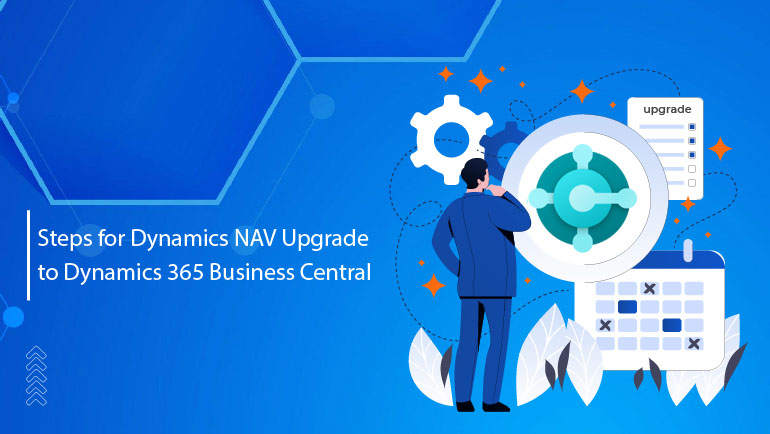Dynamics 365 Business Central Cloud or On-premise – Which one should you choose?
Achieving business dreams is easier said than done when you have a tad lot of work to be done. Sometimes, businesses need assisting integrated software to revolutionize the way you do business.
From marketing to sales and operations to finance – Dynamics 365 Business Central allows you to optimize and enhance every stage of the business generation process. And do business without any silos.
Also, Business Central sales reports allows sales and business professionals to get insights and statistics about current and past sales activities.
Microsoft Dynamics 365 Business Central is available as both a cloud offering or an on premise solution. To choose one from the two – there are various aspects that need to be taken into consideration – like pricing, data access, storage, systems integrations, and more. Let’s understand what suits best for your line of business.
Make informed decisions, accelerate finance planning, reconcile your bank statement, keep track of assets, and do much more, to run your business efficiently with Dynamics 365 Business Central. Read further to understand how Business Central will propel your business forward.
1. Business Central Maintenance Costs
- Business Central Cloud – When you choose Business Central Cloud, the payment is required either monthly or annually, following a subscription based licensing model. And coming to the hosting part, since it is done on Microsoft Azure – no specific in-house servers or software installation is required. Expenses/updates are scheduled automatically.
- Business Central On Premise – Simply pay a one-time licensing fee to acquire the software. Unlike Business Central Cloud, you’ll require dedicated server space for hardware installation and hosting solutions. Additionally, having an in-house IT team is essential for assistance and emergency software support.
2. Business Central Deployment
- Business Central Cloud – Given Microsoft’s team of seasoned tech professionals with extensive experience, cloud deployment becomes a swift and seamless process, with the majority of the work handled by experts.
- Business Central On-Premise – Getting to the core of the matter – this won’t occur rapidly, unlike the cloud. On-Premise demands physical installation, consequently consuming considerable time and logistical efforts for the setup.
3. Up-Time
- Business Central Cloud – Microsoft assures uptime and a proven track record with 99% for companies associated. And it largely depends on your Internet Connectivity – Faster that is, the faster this will be.
- Business Central On-Premise – This has an inner edge as companies don’t have to depend on any kind of internet connectivity for accessing the CRM. So, companies can expect full uptime, provided the server is always stable.
4. Business Central Pricing
- Business Central Cloud – Users will have to pay a monthly fee if they choose to go ahead with the cloud solution. The pricing will depend on various factors like the size of the business, storage, it takes up, and more.
- Business Central On-Premise – When you opt for this solution, one prime advantage for the company is there are no recurring payments that need to be made. All you need to shell out is a one-time fee for installation.
5. Data Access
- Business Central Cloud – All the data that you choose to store in the Business Central accounting software can only be accessed via CRM API or connectors. And yes, there needs to be external intervention for a seamless workflow.
- Business Central On-Premise – Run the business, the way you want. Brands would get full access to the data and customize based on their needs. Unlike the cloud, there needs no separate API to view, edit, or share data.
6. Storage
- Business Central Cloud – The cloud system comes with a storage capacity of 5GB. And before the question hits your mind, here we are clearing the air. You can get an extra 2.5 GB for every 20 licenses, which indeed is a boon.
- Business Central On-Premise – Here, the storage completely depends on the bandwidth and is limited to the available server storage. In the long run, as the size of business upscales, hiccups might sprout up.
7. Upgrades
- Business Central Cloud – Upgrades can be installed seamlessly. Since this is a cloud deployment backed by Microsoft, the upgrades can be done in a swift manner. And the team also will be available for assistance
- Business Central On-Premise – The responsibility to install new upgrades (if any) falls back on the company since the system is hosted from your premises. Your system admin will have to install and run the updates.
8. Data-Viz
- Business Central Cloud – Make no decisions based on assumption. With the help of data-backed insights, you can harness the power of data to forecast business growth, and plug leaks across your system.
- Business Central On-Premise – Oops, some not-so-good news here. Data Visualization has to be relied on manually for Business Central On Premise hosted brands. However, with a strong marketing team in place, this won’t seem a hurdle.
9. Ownership
- Business Central Cloud – All the information is stored safe and secure in Microsoft Data Centre. And since the core data lies with Microsoft, you won’t be having end-to-end ownership of the data.
- Business Central On-Premise – Since the whole system is installed and hosted from your campus, there lies complete ownership of your data. Stay compliant with the latest updates and scale new markets with agility.
Conclusion
No doubt whatever you choose, be it Business Central Cloud or On-Premise, the features are fabulous on the kind of impact you can create with a powerful-features loaded like Dynamics 365 Business Central platform.
If you are a small or a mid-sized company that is just starting out or in the revenue-acceleration stage, deploying a Cloud solution would be apt for you considering there would be fewer silos that are dependent on you.
However, if you are a large-sized company with enough initial investment to install an on-premise solution and as someone who looks to have complete control over your business, you can proceed with Business Central On Premise.
Stay on top of your workflow with Dynamics in-depth software that lets you manage the data of your whole company seamlessly. And if you still have doubts hovering across your mind or if you just want to know more details about what would fit into your business requirements, you are just one step closer. Get in touch with us and we’ll discuss over a cup of coffee (remotely, of course).
Integrate seamlessly, gather full flex of your business, make smart decisions with data-backed analytics, and increase your ROI. We’ll help you with the rest to achieve your business goals.
Nevas Technologies a trusted Microsoft Dynamics 365 Partner in USA that has helped many companies in Microsoft Dynamics 365 Business Central Implementation. If you want to understand what it might mean for your organization for Business Central Implementation, please contact us.




